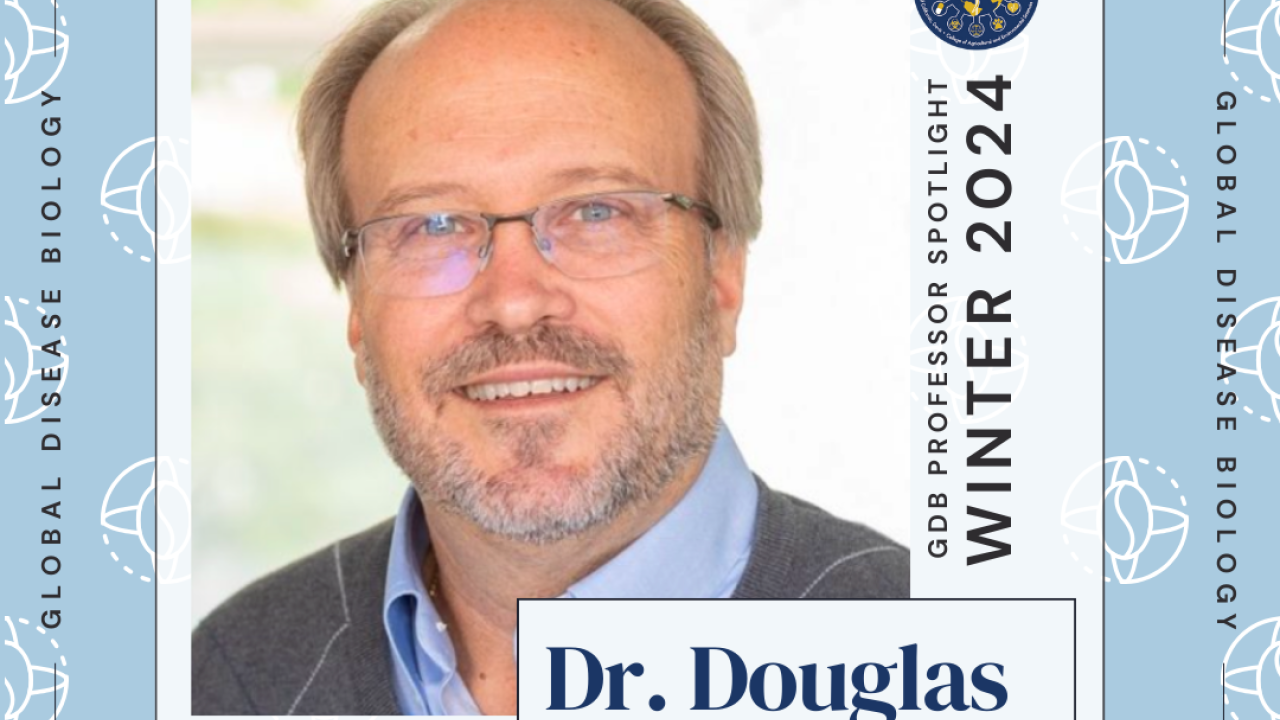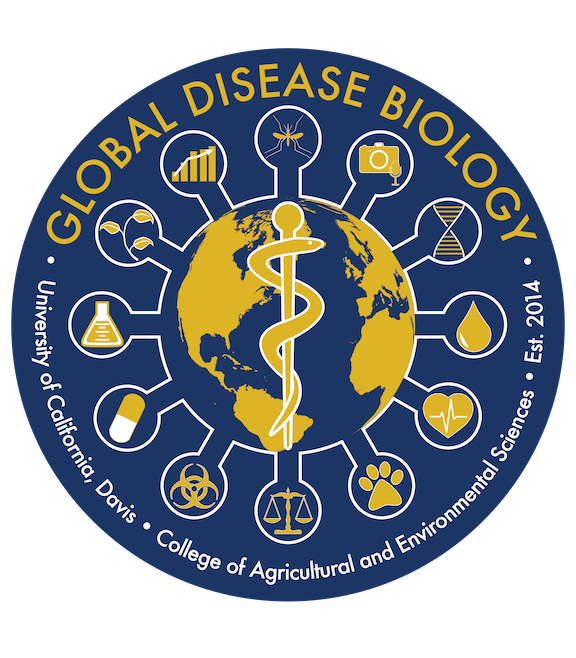
Professor Spotlight Winter 2024: Dr. Douglas Cook
Dr. Douglas Cook is a professor in Plant Pathology. He is also Director of Feed the Future Innovation Lab for Climate Resilient Chickpea. Dr. Cook's studies focus on chickpeas' and nitrogen fixing. He teaches one of the GDB major requirement Pathogen/Disease course options, GDB 103: Microbiome of People, Animals, & Plants.
How did you decide to study Plant Pathology and Plant Biology?
After I graduated with my bachelor’s degree (many years ago, in 1982), I had the opportunity to work at a private research foundation in the greater San Francisco Bay Area. I worked as part of an organic chemistry group, studying antibiotics that were made by plants in response to infection by pathogens. These antibiotics are called “phytoalexins”. From that experience, I understood that the plant must recognize their pathogens. How this happened was entirely unknown. I was fascinated by this puzzle. This led me to apply to graduate school and join a lab at the University of Wisconsin, studying the activation of plant immunity in response to infection by bacterial pathogens.
How have your past experiences prepared you for working at UC Davis/ Did you have any other jobs?
During my undergraduate education I worked with two professors who were studying honey bee biology and the biosynthesis of a plant hormone known as ethylene. The ethylene project cemented my interest in plant biology. I also worked as an inorganic chemist at a small company. The three jobs (all science-related) confirmed my interest in both biology and chemistry, and ultimately they were formative to my career. Perhaps most importantly, through these jobs I acquired faculty mentors who knew me well enough to write compelling letters of recommendation that I needed as my career advanced. The internships that GDB students perform can serve this purpose!
What about teaching at UC Davis do you love?
I teach both undergraduate and graduate students, but I am most motivated to teach undergraduates. Undergraduates can have a greater sense of wonder about science, which is very rewarding to the instructor.
Besides being a professor, what are some outside hobbies you enjoy right now?
My main hobby outside of work is music — collecting and playing guitars. I also enjoy international travel.
What would your students be surprised to find out about you?
It’s not specific to me, but I think that students are often surprised to find that "Professors are people too”. Especially for students who are interested in careers in science, interacting with faculty outside of class, for example, working in their labs or visiting their offices with questions, can be very valuable.
What is the best piece of advice anyone has given you?
Never stop being curious. Science is always changing, especially as new technologies open new doors. We need to be life-long learners.
